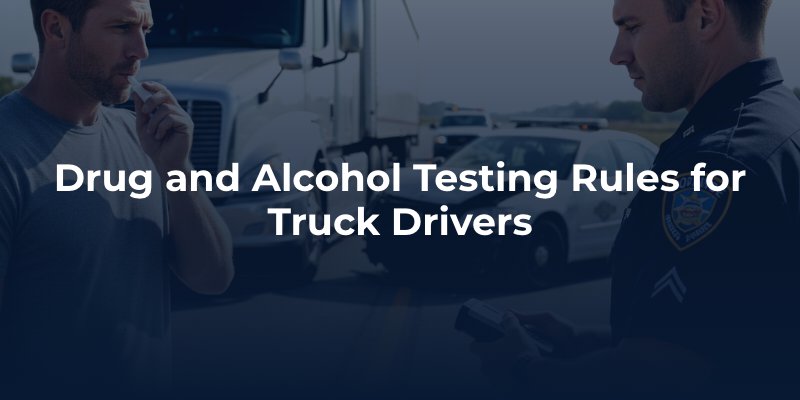When you’re hurt in a crash with a large truck, questions often come up about whether drugs or alcohol played a part—especially when something about the driver’s behavior seemed “off.” Truck drivers must follow strict federal rules about substance use, and testing is required after certain types of accidents. Understanding when and how these tests are performed can be critical evidence in your case.
If you suspect impairment played a role, speak with an Indianapolis truck accident lawyer immediately so they can secure the testing records before they disappear. Contact us today for a free consultation.

Testing After Fatal Truck Crashes
Federal regulations require a truck driver to undergo post-accident drug and alcohol testing whenever a crash results in a fatality regardless of whether the driver gets a ticket or not. An alcohol test must be completed within 8 hours of the crash, while a drug test must be done within 32 hours. These strict time frames ensure that any evidence of substance use is identified and documented promptly.
Your Case Will Get
The Attention It Deserves

When Someone Is Injured and Taken for Emergency Medical Care
If anyone is injured in the accident and is transported for medical treatment and the truck driver is cited for any moving violation, alcohol and drug testing is mandatory. Alcohol testing must be performed within 8 hours, while drug testing must be performed within 32 hours of the accident. If no citation is issued in this situation, drug and alcohol testing is not required.
If Any Vehicle Suffers Tow-Away Damage + Truck Driver Citation
Drug and alcohol testing is also mandatory if at least one vehicle is so damaged that it must be towed and the truck driver receives a moving violation citation. The same timing requirements apply: 8 hours for an alcohol test and within 32 hours for a drug test. If the driver does not receive a citation, even with severely damaged vehicles, there is no federal requirement for testing.
What Happens If a Truck Driver Refuses Drug or Alcohol Testing?
If a commercial truck driver refuses to take a required drug or alcohol test after an accident, they face the same consequences as if they had taken a test and been positive for drugs or alcohol. Employers are required by law to immediately pull the driver from any duties that involve operating a truck or performing other safety-related tasks. Refusing to test can lead to loss of the driver’s job, immediate removal from duty, and serious consequences from the Department of Transportation as if they tested positive for drugs or alcohol. It can also be used in your case against the driver and possibly the trucking company to argue liability. Individuals who have been involved in a crash with a truck and believe the driver was under the influence need to be aware of these rules so they can push for this to happen.
If you’re in this situation, make sure you reach out to an Indianapolis personal injury lawyer as soon as possible so they can help you get the evidence you need to recover compensation. Call us today to schedule a free consultation.





